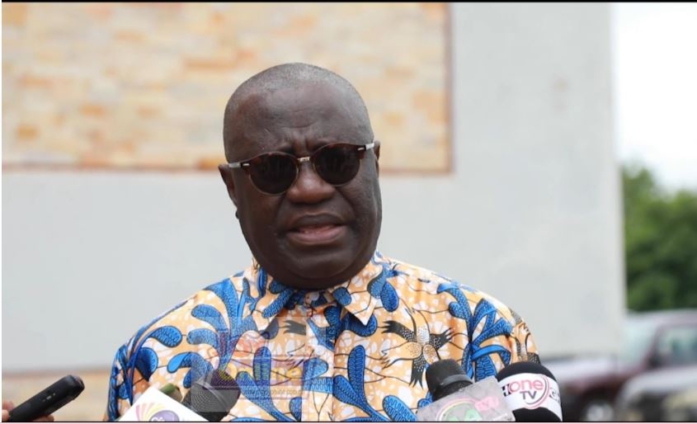The Director of the Faculty of Academic Affairs and Research at the Kofi Annan International Peacekeeping Training Centre (KAIPTC) says the ECOWAS standby force was instituted to respond to civil wars and not to be engaged in eras of constitutional changes within its member states as it seeks to do presently in the wake of the coup in Niger.
Professor Kwesi Aning says there is no conflict or civil war in Niger, therefore the bloc should rather consider using "a graduated set of responses" to resolve the situation.
"The standby force idea was also to respond first and foremost to civil wars and not to constitutional changes or internal political misunderstandings where there is massive bye-in as to what is happening. I mean there's no conflict in Niger per se.
"There rather ought to be a graduated set of responses as an internal crisis escalates," he said on JoyNews' Newsfile on Saturday.
The expert explained that the bloc does not seem to have exhausted all options in its laid down procedures. The West African bloc has jumped steps, according to Prof. Aning. "What we've seen is an automated response from ECOWAS, from zero to hundred,"
Military option should be the last resort, he stressed.
ECOWAS has reportedly given the green light to its standby force to prepare for what it calls an intervention in Niger. According to reports, heads of forces of member states are convening in Accra to hatch an intervention plan.
This follows a one-week ultimatum given to the military junta in Niger to return the country to a constitutional order following its coup.
On the back of this, Prof. Aning explained that the bloc has even defaulted when it comes to its processes in moblising forces for interventions.
"If you look at the mechanism Article 28, 1, it specifies the processes for force generation. That has not been followed. Quite a number of these decision-making processes and procedures have been hopped over and then we have taken the decision of last resort," he explained.
He indicated that international organisations function best when there is compliance with what they have voluntarily signed on to and when there is a sense of "bindingness" relating to the values, principles and decision-making processes.
Latest Stories
-
Vasseur questions ‘strange momentum’ of Formula One race director change
17 mins -
“I am disappointed in Kojo Manuel” – Merqury Quaye on “no tie” comment
18 mins -
Nana Kwame Bediako; The beacon of unity
20 mins -
Western Region: NDC youth wing embarks on phase 2 of ‘retail campaign’
46 mins -
Action Chapel International holds annual Impact Convention in November
47 mins -
Jana Foundation urges young women to take up leadership roles
51 mins -
All set for Joy FM Prayer Summit for Peace 2024
1 hour -
Managing Prediabetes with the Help of a Dietitian
1 hour -
Joy FM listeners criticise Achiase Commanding Officer’s election comment
2 hours -
Legal Aid Commission employees threaten strike over poor working conditions
2 hours -
Ghana ranked 7th globally as biggest beneficiary of World Bank funding
2 hours -
IMF board to disburse $360m to Ghana in December after third review
2 hours -
Former Bono Regional NPP organiser donates 13 motorbikes to 12 constituencies
2 hours -
Securities industry: Assets under management estimated at GH¢81.7bn in quarter 3, 2024
2 hours -
Gold Fields Ghana Foundation challenges graduates to maximise benefits of community apprenticeship programme
4 hours

